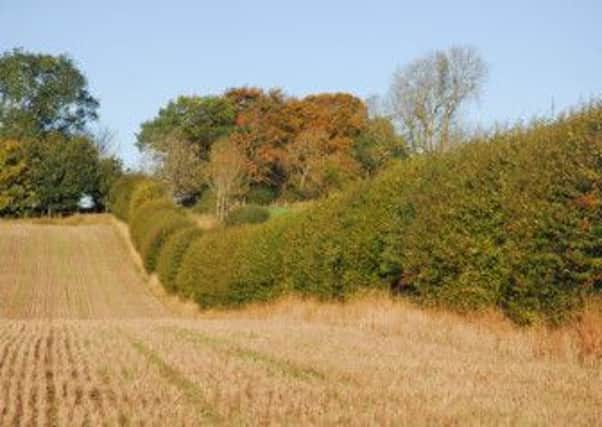Benefitting from nature’s services


The Scottish Borders has been selected by the Scottish Government as one of two pilot areas to explore the development of a regional land use framework.
The national Land Use Strategy (LUS) seeks a more integrated approach to land management in recognition of the increasing number of pressures and demands placed upon the countryside.
Advertisement
Hide AdAdvertisement
Hide AdThe objective of the regional pilot is to work towards producing the early stages of a non statutory and flexible framework, which could guide different “users” to make more informed decisions about land management planning.
It should facilitate debate on conflicting land uses and help prioritise funding streams, such as those found within the Scottish Rural Development Programme, beyond 2020.
The pilot has run from April 2013 until the spring of 2015 and will help inform the revision of the national Land Use Strategy which is to be published in 2016.
Central to the LUS process, is the desire to employ an ecosystems approach to managing natural assets and this is very much part of the Tweed Forum’s raison d’etre. Ecosystems Services are what nature provides society with by way of habitat function i.e; clean water for drinking, woodland for carbon storage and flood management, soil for food production and wildflower grasslands for pollinating insects.
Advertisement
Hide AdAdvertisement
Hide AdAlthough the LUS pilot process is being led by Scottish Borders Council, they have recognised that they need to work closely with land managers and other stakeholders and will therefore be working closely with Tweed Forum, who will co-ordinate stakeholder engagement during the process. Stakeholders include anyone who has an interest in managing land or has views on how land should be managed locally.
The Borders Countryside provides us with a wealth of benefits such as; food, timber, clean water, energy, employment, wildlife and recreational opportunities. We demand more and more from the land, so we should optimise the ways in which we use the land to face up to the difficult choices that lie ahead. The objective of the LUS is to help us think more strategically about the potential of our land and the ways we could use land to deliver multiple benefits for society in future.
The process will involve looking to the long term at the key land use types in the Borders and to see how they might be impacted by society’s changing needs. This process will hopefully ensure we retain what is special about living here and also ensure that the countryside will continue to supplement future generation’s needs, in view of the increasing demands placed upon it.
Ian MacDonald, who farms near Selkirk, said recently: “Given the challenges that lie ahead by way of food security and changing weather patterns, it is important that we manage our natural resources effectively to ensure we have the right land use in the right place at the right scale. Any tool that helps land managers make more informed decisions about land management is to be welcomed.”
Advertisement
Hide AdAdvertisement
Hide Adn For more info about the Land Use Strategy pilot should access Tweed Forum’s website at www.tweedforum.org/lus . Alternatively, contact Derek Robeson on 01896 849723 or at [email protected]